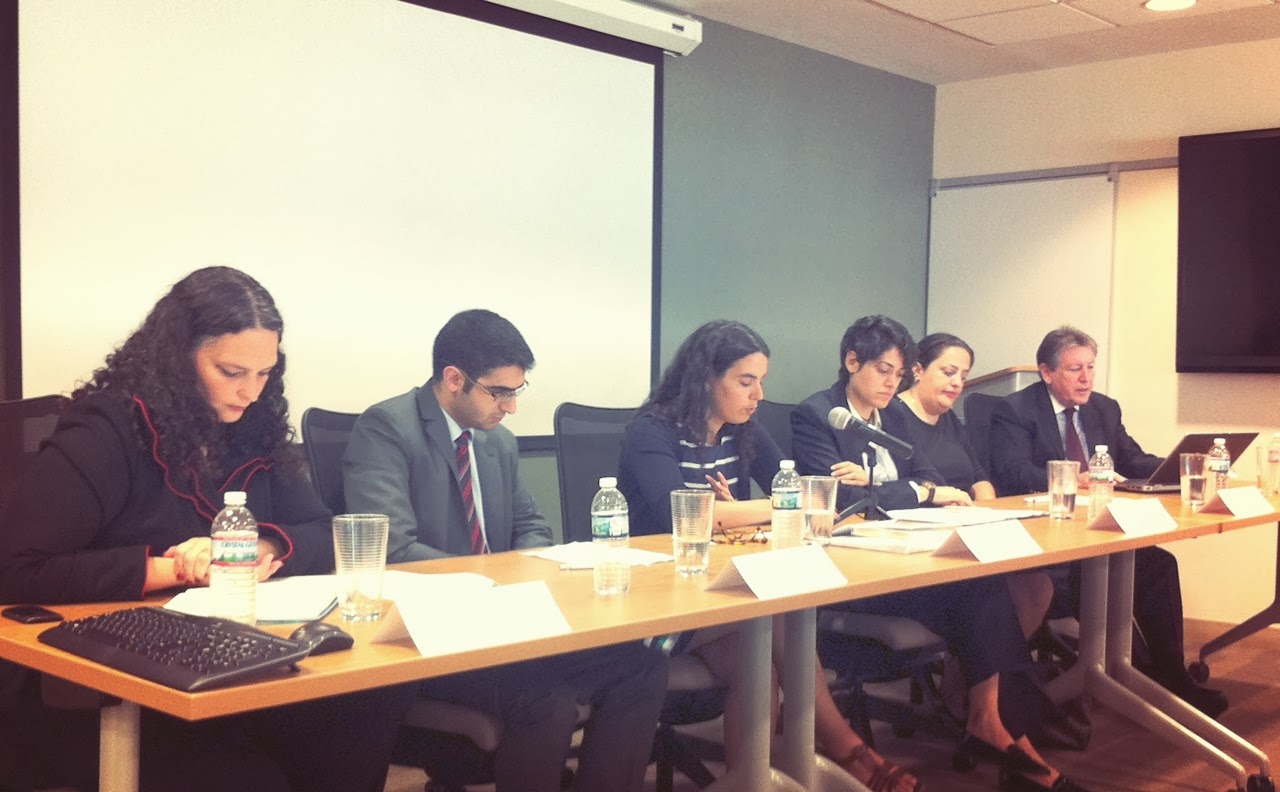- Public Policy
- Leadership
- Funding
- News & Events
- About the Center
Back to Top Nav
Back to Top Nav
Back to Top Nav
Back to Top Nav
 |
| Ala Alrababah (second from left) along with other panelists |
This opportunity was funded by the Rockefeller Mini-Grants Program. For more information, please click here.
Presenting at a panel and a scholarly conference on my research was a particularly valuable experience. My research, which I did while interning at the Center for Nonproliferation Studies, focused on the strategic and political challenges to arms control in the Middle East. I discussed the traditional challenges that existed before the Arab uprisings.
One main challenge is the trust deficit among countries in the Middle East, which prevents them from cooperating on arms control. Another challenge relates to timing. Should arms control be implemented before or after a lasting peace agreement in the Middle East? Moreover, specific countries have their own concerns with arms control.
Israel, which has not signed the Non-Proliferation Treaty, does not have to abide by the treaty’s calls for conferences to discuss arms control with regards to weapons of mass destruction in the Middle East. On the other hand, several Arab countries, as well as Iran, worry that cooperation on arms control may lead to normalization of relations with Israel before a Palestinian state is established on the ground. The Arab uprisings of 2011 made matters more complicated in relation to arms control. Because of internal instability and diminishing security, arms control has ceased to be a priority for several countries in the region.
Nevertheless, as some participants pointed out, the agreement on removing chemical weapons from Syria may provide momentum to arms control in the region. Overall, presenting about my research enhanced my understanding of the problems of arms control in the Middle East. The provocative and enlightening feedback I received also contributed to my understanding of this issue, for which makes me grateful for the opportunity of taking part in the conference.
--Ala Alrababah '14, Guest Writer